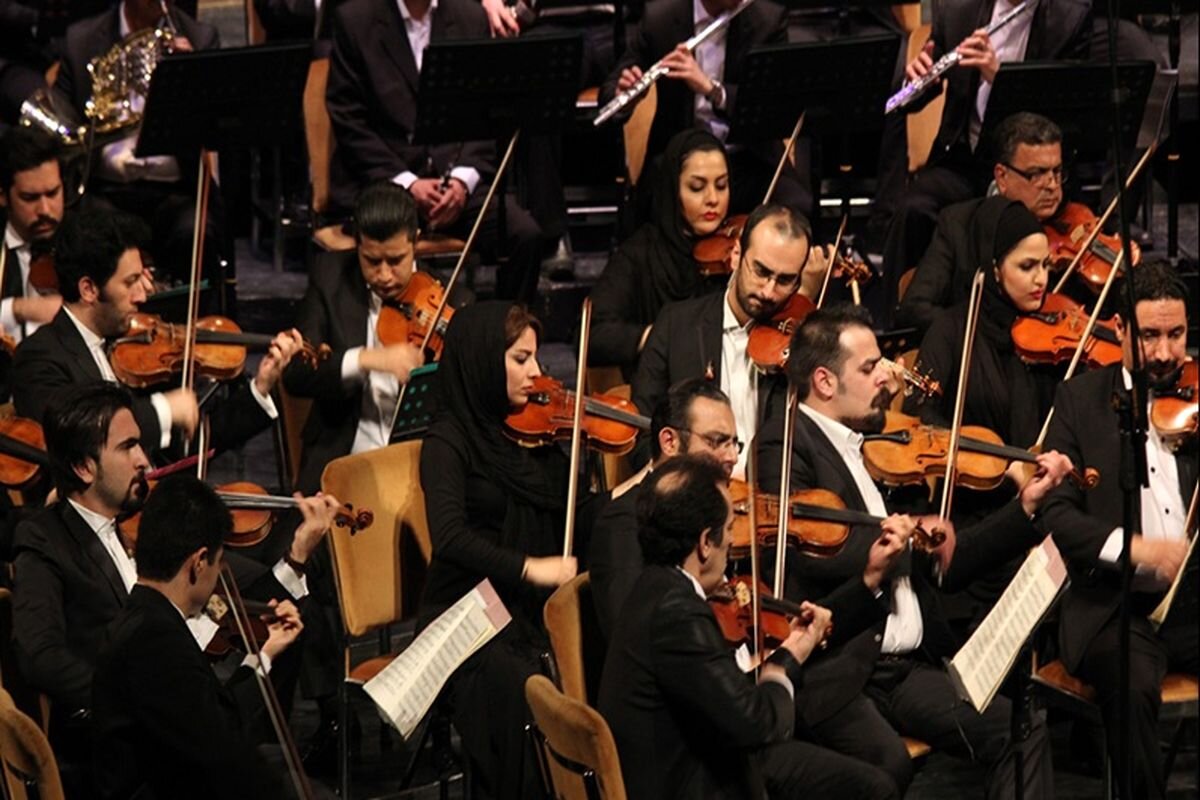Maziar Zahiroddini to conduct Iran's National Orchestra

TEHRAN-In its last performance in the current Iranian year, Iran's National Orchestra will hold a concert on Thursday at Tehran’s Vahdat Hall.
Conducted by the guest conductor Maziar Zahiroddini, the orchestral will perform pieces by Iranian composers, Ahmad Pejman and Mehran Rohani, ISNA reported on Wednesday.
The performance comprises four movements from Pejman’s album “Divertimento” including “Soraan,” “Hengaam,” “Shoosh,” and “Xaarazm,” each composed according to the ethnic melodies of different regions.
Rohani’s Nostalgia album comprises three movements, each composed based on compositions by masters Akbar Mohseni, Ali Tajvidi, and Rouhollah Khaleqi.
Zahiroddini, 49, is a musician, violinist, and concertmaster of the Tehran Symphony Orchestra. Born in Tehran, as a child, he learned the basics of music from his father Mahmoud Zahiroddini. After completing his primary education, he entered the Tehran Music Conservatory and learned to play the violin. After finishing his studies, he started working with the Tehran Symphony Orchestra led by Fereydoun Nasseri. He has been selected as the best violinist in two editions of the Fajr Music Festival.
He has collaborated with several renowned musicians, singers, composers, and conductors including Farhad Fakhreddini, Shardad Rohani, Ali Rahbari, Ali Ghamsari, Babak Bayat, Hesameddin Seraj, Mohammadreza Shajarian, Hamid Hami, Homayoun Shajarian, Alireza Mashayekhi, Fardin Khalatbari, Alireza Ghorbani, Abdolhossein Mokhtabad, Alireza Eftekhari, and Majid Entezami among others.
Pejman, 86, is an Iranian classical composer who resides in the U.S. He is notable for his operatic and symphonic works.
Born in Lar, Fars Province, Pejman started violin lessons in high school. As a young violinist with the Tehran Symphony Orchestra, he was awarded a scholarship to study composition at the Music Academy in Vienna. As a first-year student at the Academy, his compositions were performed by the Vienna Chamber Orchestra, and his orchestral work Rhapsody was performed by the Vienna Radio Symphony Orchestra.
Upon graduation from the Academy of Music in Vienna, Pejman returned to Iran in 1968. Between 1969 and 1978, he continued to compose symphonic works, operas, ballets and also wrote many scores for motion pictures and television programs.
In 1976, Pejman moved to New York, where he entered Columbia University's Doctorate of Music program in New York and continued his studies with Buelant Arel, Vladimir Ussachevsky, and Jack Beeson.
In 1984, he moved to Los Angeles and continued to compose and arrange music for jazz and pop ensembles, and motion pictures.
In 1992, Pejman was commissioned to write a cantata for choir and orchestra for the liberation of Khorramshahr. In 1993, he was commissioned to write music for the musical theater “Mokhtar” to be performed at Vahdat Hall. Since 1993, Pejman has been writing film music and composing for the orchestra and choir and released various soundtracks and CDs.
Rouhani, 78, was born in Tehran. His musical training began at the age of eight. Although he achieved a BSc in economics, his love for music drew him to the Faculty of Fine Arts, University of Tehran, for further studies in music.
Upon graduation, he entered the Royal College of Music in London where he studied composition with Philip Cannon and Anthony Milner. Meanwhile, he continued advanced composition lessons with the late Sir Michael Tippet.
After finishing his studies, he went back to Iran, where he held a professorship position at the Faculty of Fine Arts and Tehran Conservatory of Music for two years.
In 2000, he moved to London to develop his career in composition. Throughout the years, he wrote many pieces, which have been performed in different parts of the world.
Iran's National Orchestra was founded in 1998 under the conduction of the renowned Iranian composer Farhad Fakhreddini.
Maestro Fakhreddini attracted a huge number of musicians, including legendary vocalist Mohammadreza Shajarian, to collaborate with the orchestra.
The orchestra was formed by Persian traditional instruments, strings, and woodwind instruments. During its history, the orchestra focused on Persian composers’ compositions including pieces by renowned figures such as Fakhreddini, Ali Tajvidi, and Hossein Alizadeh among others.
SS/
Leave a Comment